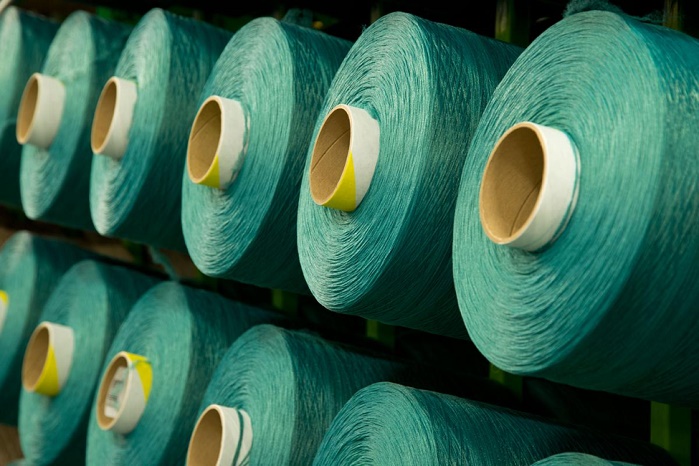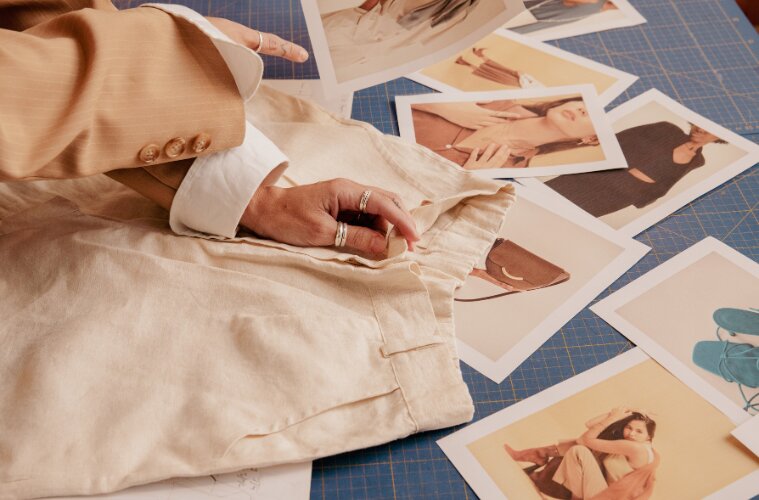FW
CPM Moscow will be held from September 4 to 7, 2018. The number-one tradeshow platform for the fashion business in Russia brings together market participants in the import and export sector and keeps visitors informed about the latest fashion trends and industry developments.
The show will feature brands from children’s, accessories, shoes, body, beach and eveningwear segments. The largest share of brands comes from Germany. Trend agencies such as WGSN from London and Fashion Snoops from New York will provide insights into the latest trends and tendencies, along with the numerous designer shows, multi-label fashion shows and trend zones. Designers and buyers will be briefed on the new spring/summer 2019 ordering season.
Italy will showcase brands like Dvroma, Elisa Cavaletti and Ferrante. Collections by Aron, Climber, Dosso Dossi, Fimka, Gemko and Perspective will be presented at the booths in Turkey’s country pavilion. Designers from Indonesia will present individually made one-off pieces with lots of attention to detail.
French companies from the high-end sector will present themselves with a stylish, consistent and appealing booth concept. In a new daily fashion show the spotlight will be on French brands. The show’s plan is to launch and implement several new projects aimed at new target groups of the trade fair audience.
As per the Directorate General of Foreign Trade (DGFT) the government has notified Panipat as Town of Export Excellence for carpets, other textile floor coverings and bed linen. Panipat is a major cluster for carpet manufacturers in Haryana with about 200 units in the micro, small and medium enterprises. Haryana is one of the four major carpet producing belts.
The Panipat offers direct employment to over 10,000 people. Besides exports, it supplies carpets worth Rs 1,000 crore in the domestic market. Haryana alone exports carpets worth over Rs 3,000 crore. The GST Council, after demands from the Panipat Carpet industry, had slashed GST rate from 12 per cent to 5 per cent to make Indian carpets competitive.
Panipat’s handmade carpet industry gave a sigh of relief after the rate cut as it was unable to face competition from Turkish imports.
Marks & Spencer has teamed up with technology education specialist Decoded to create the world’s first retail data academy. Marks & Spencer will offer over 1,000 staff members from every function of retail from store managers to finance the opportunity to develop their digital skills.
The leadership team will also embark on a Data Leadership programme enabling the opportunity to get hands-on with technology such as machine learning and artificial intelligence to become the most data-literate leadership team in retail.
Employees will be encouraged to enroll in The Data Fellowship, an 18-month data science skills programme, where they will learn to harness cutting-edge data analytics tools such as R and Python and adopt technologies such as machine learning. Learners who finish this programme will get a data analytics qualification accredited by the British Computing Society.
Steve Rowe, Chief Executive stated this is our biggest digital investment in people to date and the creation of the M&S Data Academy will upskill colleagues and provide them with an in-depth level of digital literacy as well as a Data Analytics qualification.
Hohenstein Institute, a leading accredited German certification provider, has launched two labs in Dhaka and Chittagong to offer a wide range of chemical and textile technology testing and results analysis. The institute has been providing such certification at its labs in Bangladesh since 2005, albeit informally. In Bangladesh it services 100 companies a year and tests 2,000 samples a day.
Garment exporters and textile producers could also get their goods tested at Hohenstein's labs in Hong Kong and Germany but it is time-consuming and expensive. The firm also provides consulting, research and development. It applies internationally recognised standards to ensure transparency in performance tests, quality controls and inspections for textile manufacturers, brands and retailers.
The services provided by the company include analytical testing, tests for harmful substances, preparation of expert reports in case of damage, physical testing for color fastness, pilling, fineness of fibers, determination of fiber composition and behavior measurement during care processes.
The European Union increased its imports of women’s garments by 16.30 per cent volume-wise from January to April 2018 period. EU imported 72.43 million kg of garments worth € 363.31 million worldwide noting 3.26 per cent surge in value-terms. UVR in the first four months of 2017 was € 26.59 per kg of women’s garments whereas in the same period this year it registered a remarkable fall of € 24.58 per kg of women’s garments. The fall in unit prices boosted the growth in the segment.
India exported € 269.16 million worth of garments to the EU marking a 10.40 per cent growth on yearly basis, while shipment in volume-terms went up 12.08 per cent during the period. Bangladesh, which was lagging behind India in exports to EU in the same period last year, surpassed this year to ship 11.09 million kg of garments among the 28-nations bloc, growing 29.84 per cent. On the other hand, its values jumped 14.17 per cent and Bangladesh exported €152.90 million worth of dresses to EU in the review period.
As per an analysis of Textile Beacon’s Fibre to Yarn Trade Statistics – India’s exports of polyester and its blended yarns, over the past five months, have recorded year on year increase of over 50 per cent in value terms. Growth had almost doubled in March this year.
The average price realisation of spun yarns between June 2017 and June 2018 increased almost US cents 10 a kg, from $2.74 a kg to $2.83 a kg. The highest US cents 15 was in case of 100 per cent polyester yarn, US cents 11 in poly-cotton and US cents 7 in poly-viscose yarns.
In June, India exported 100 per cent polyester yarns worth $11.5 million to 49 countries at average unit price of $2.49 a kg with volume at 4.6 million kg. During the month, 9.8 million kg of PC yarns was exported worth $27 million while 4.7 million kg of PV yarns were exported worth $14 million. Globally, Turkey is the largest importer of polyester yarn, followed by Brazil and US. Bangladesh, Colombia and Egypt are the largest importers of PC yarn from India while Turkey is the single largest importer of PV yarns from India followed distantly by Pakistan.
Vietnam’s exports of garments and textiles are predicted to reach $18.5 billion in the second half of the year, bringing the country’s total export turnover to $35 billion. This strong performance can be attributed to the slew of bulk orders stretching to the end of the year. The total garment and textile export turnover in the first half of the year surged 16.49 per cent to $16.5 billion against the same period last year.
The sector also recorded high growth in exports to key markets such as the US, EU, Republic of Korea, China, ASEAN and member states of the Comprehensive and Progressive Agreement for Trans-Pacific Partnership (CPTPP). Some businesses reported strong export performance including Tinh Loi (Regent Garment), Viet Tien Garment Joint Stock Corporation, Regina Miracle, and Worldon Vietnam.
To achieve double digit growth, the sector should focus on increasing labour productivity, reducing delivery times, and building an efficient logistics network, while investing in advanced technologies to improve the quality and design of products to conquer the local market and penetrate foreign markets.
As per Jordan’s Garment Traders Association, the country’s garment sector has recorded a 35 per cent decline since January as demand for clothes and shoes was lowest in three years. The sector witnessed zero profit, despite the return of Jordanian expats for summer. Import amounted to JD195 million for the first half of the current year, compared to JD220 million for last year’s first half.
In recent years, there has been a noticeable decline in the Kingdom’s import of clothing and shoes, with around JD280 million in 2015, and then dropping 25 per cent over the past two years. With Eid Al Adha approaching, garment store owners “have minimal preparations, with little-to-no expectations on a higher demand on clothes and shoes. The custom duties and taxes- which amount to 57 per cent of the product’s price — are some of the major challenges facing the traders and retailers,
As China is looking for allies in its fight with the United States, Britain has come forward in support of Chinese companies and expressed its desire to sign post-Brexit free trade deal with China. A trade pact with China would be a political win for Britain's government but formal talks cannot begin until it officially leaves the EU next year. China has also appealed to other countries to support it in upholding free trade and the multilateral trading system, though European countries in particular have many of the same market access complaints as the United States.
Both China and the United States appeared to have avoided a full-scale trade war in May, with China agreeing to buy more US agriculture and energy products, but the deal collapsed and the two sides slapped import tariffs on their respective goods. Washington has since threatened to set tariffs on an additional $450 billion worth of Chinese goods, and no formal negotiations between the two countries have taken place since early June.
Century Textiles and Industries reported net sales of Rs 2209.38 crores during the three month period ended June 30, 2018 as compared to Rs 2301.18 crores during the three month period ended June 30, 2017. Net profit was Rs 162.66 crores as against Rs 120.24 crores for the three month period ended June 30, 2017.
Mumbai-based Century Textiles and Industries is active in textiles, viscose filament yarns, cement, and pulp and paper. In the textile business, Century has two revenue streams: cotton fabric and denim units, The company has a vertically integrated plant at Bharuch for manufacturing cotton fabrics.
The cotton division of Century is one of the oldest in India and manufactures a wide range of premium textiles and supplies to many international players, including Royale Linen, Ralph Lauren, DKNY, Belk and US Polo. Century Textiles’ financial metrics declined, mainly due to its high debt.











